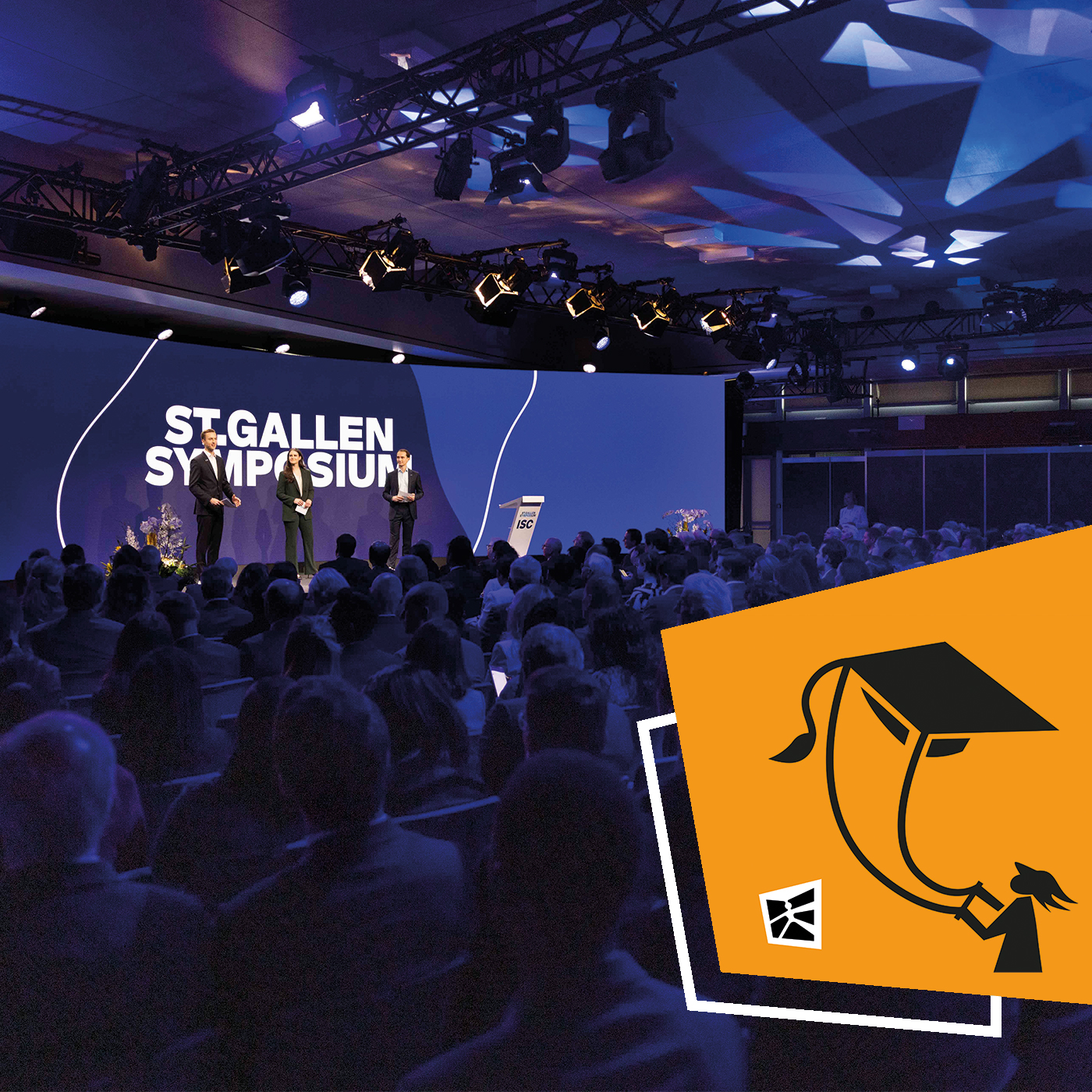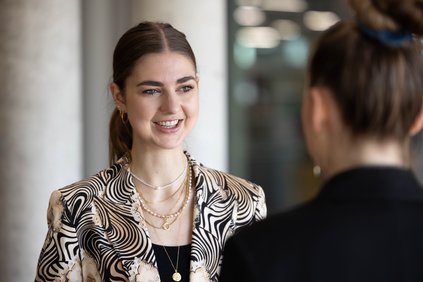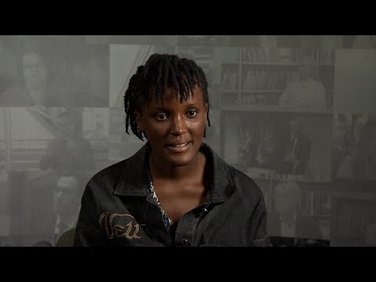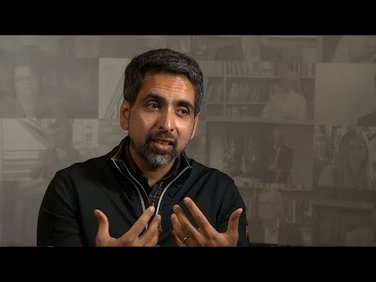Background - 11.05.2023 - 09:00
Elliot Gunn: «Learning across generations is important for obtaining perspective and wisdom»
On 4 May, Elliot Gunn was named the winner of the Global Essay Competition at the St.Gallen Symposium. In the interview, he shares his thoughts on problems in today's healthcare systems and offers insights into the symposium experience as a «Leader of Tomorrow». By student reporter Anna Schreiter.

St.Gallen Symposium Global Essay Competition Winner Elliot Gunn
Congratulations Elliot Gunn on winning this year’s Global Essay Competition of the St.Gallen Symposium 2023. When did you first hear about the Symposium as well as the competition? What motivated you to participate in the latter?
I heard about it by accident. It was the Twitter algorithm, I wasn‘t following St.Gallen University. It was a recommended tweet and I was intrigued because of the trip to Switzerland. When I looked into it, I found many connections that were interesting, such as the links to Singapore, the number of speakers they were bringing in, and the types of essays that were published last year. That's what made me apply.
In your essay you write about problems in today’s healthcare systems, focussing on the UK and Canada. How did you become aware of that problem? Does it play a role in your personal life?
As someone who's very engaged with the news in my country, Canada, and even in the UK, I had a lot of opinions about things that were going wrong in healthcare, housing, education, and all the strikes. So I thought this was a unique opportunity for me to actually put those thoughts down in a systematic way and really challenge myself to think about how I would solve that problem if I had the power to.
Also, in my immediate family, I have many relatives who are doctors and nurses, so I've heard firsthand how difficult some of these challenges have been during and after the pandemic. My relatives are in Singapore and Canada, so I've been able to hear very different perspectives on how healthcare systems either rise to the challenge or crumble under pressure. That was my personal link, but I had also another: As an international student in the UK, I realized for the first time that I was uniquely vulnerable if something serious happened to me. I don't know if I would get the same level of care as an international student as I would have back home and I was also not familiar with how the National Health Service (NHS) works. Through writing this essay, I tried to educate myself. It made me realise how much I had taken universal healthcare, and functioning healthcare systems, for granted.
What do you think are the next relevant steps that need to be taken to turn your proposed reforms into reality?
I think a big part of the crisis is a political problem. In some of the talks at the symposium, they talked about the challenge of short-term versus long-term thinking. Politicians face very short election cycles, so it's hard for them to take a risk on unpopular policies, even if it may be the right thing for the country in the long term. So I think as a first step we need to start getting good policymakers into government – not people who can just get the support of a crowd but experts who actually understand these economic frameworks about incentives, optionality, opportunity costs, and trade-offs, and translate that into good policy.
As the winner of the competition, you will also receive 8,000 CHF. Are you planning to invest it in a «New Generational Contract»?
The first thought that came to mind was so much gratitude for the Symposium, as this will go towards paying for my tuition fees because studying at the LSE as an international student has been quite expensive. But I do like the idea of using a bit of that money for something else. I think I would like to use a bit of it to explore the idea of creating an advocacy group around some of my proposal ideas. I'm not a policymaker or a bureaucrat. I might be in the future, but right now I don't really have the network to translate these ideas into action. I've been thinking about starting a small network of other interested like-minded people like myself and other «Leaders of Tomorrow» and start to organize and be more vocal about our ideas.
This year you participated as a «Leader of Tomorrow» at the St.Gallen Symposium. Will you come back next year as a «Leader of Today»?
We are honored to be invited back and I think the three of us finalists are committed to returning next year. This has been such a special experience and I don't feel like this journey has ended, so I want to be back next year. Also, I hope to continue to be connected through a local St. Gallen chapter. There is talk about starting one in Toronto as there are quite a few Canadian alumni now.
What was your personal highlight and what do you take away from the 52nd St.Gallen Symposium?
My good friend and housemate from the UK, Raphael Chang, is here with me. We applied together and he was really excited to come because he will be working for Minister Desmond Lee's department when he returns to Singapore in the fall. We had the chance to talk in a group with a sitting minister about our ideas, and he personally encouraged many of us Leaders of Tomorrow to raise our ambitions higher in translating our ideas to action. That was the most meaningful moment of the St.Gallen Symposium for me.
Do you have any advice for other young people who would like to contribute to the generational exchange themselves?
Learning across generations is so important for obtaining perspective and wisdom. So I think the most practical way most of us can go about doing this is to find mentors. If you're at work, it might be easier. They might already have an organized system in which you get matched up with more senior leaders, but you can also do this more informally by just seeking people out and asking them for coffee chats. I've been encouraged to do that even as an undergrad. It’s so important for students to take the opportunity to go to office hours and talk to their professors. So many students don't do that. I still keep in touch with professors from my undergraduate at the University of Toronto and they continue to be my mentors through my working years and now while I’m finishing graduate school. There are potential mentors everywhere you look, you just have to be willing to be curious about their perspective and what they have to teach you.
Anna Kati Schreiter studied business administration at the University of St.Gallen.
More articles from the same category
This could also be of interest to you
Discover our special topics



![[Translate to English:] Choix Goncourt de la Suisse | unisg.ch](https://www.unisg.ch/fileadmin/_processed_/b/a/csm_Choix_Concourt_de_la_Suisse_HT-Stibi-069_2110740678.jpg)












